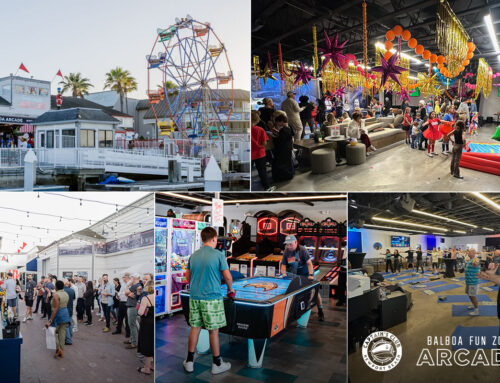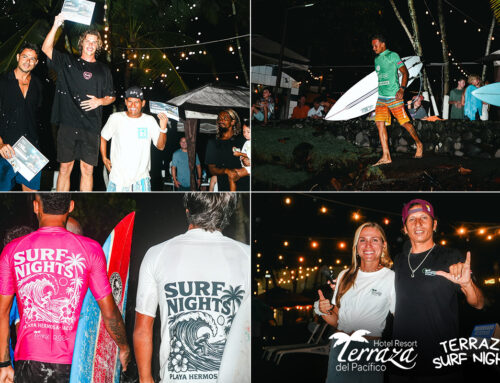
DAY 17:
Tuesday, March 9, 7:30 a.m. — Denver Nuggets coach George Karl pops in his mouthpiece and puts on his helmet and braces himself for a brutal 15 minutes, but this isn’t football. This is cancer radiation.
We’re at Denver’s Swedish Medical Center. The helmet is actually a white, hard-mesh mask that fits to every contour of Karl’s big bucket head. It has red crosses all over it, like a hockey goalie’s. He lays his 283 pounds on the table and the technicians clamp the mask on hard. How Karl breathes I’ll never know. They secure his limbs and ask him to hold a blue plastic donut so no part of him moves. He looks like Hannibal Lecter about to get fried.
“It makes you a little claustrophobic,” the 58-year-old coach tries to say through the mask. “But what are you gonna do? Leave?” Coaching the wildly talented but wildly uneven Nuggets is hard enough, let alone doing it with throat and neck cancer, but that’s what Karl is trying to do. Everybody tells him it’s not possible, and today, maybe he’s starting to believe them.
With only three of his torturous six weeks of treatment done, and the inside of his mouth looking like he just took 100 bites out of a lava-hot pizza slice, and his head throbbing and his eyes hollow, Karl looks like a guy who should be on a stretcher, not an NBA bench.
“George, this is only going to get harder,” a nurse tells him. “You’re not going to feel like working.” Clearly, she’s never met George Karl.
He shows me many things I don’t want to see. He’s doing it because he wants people to know exactly what it’s like. Wants to take the fear and mystery out of it for people.
Suddenly, the huge gray machine whirs like a giant Transformer, turning sideways, first this side, then that, as though it’s trying to decide how to eat him. Then it zaps his throat and neck lymph nodes, ravaging them. It gives him a radish-red rash that’s covering his face, chest and back. I know. He shows me. He shows me many things I don’t want to see. He’s doing it because he wants people to know exactly what it’s like. Wants to take the fear and mystery out of it for people.
“The rash is a good sign,” says the technician. “It shows the radiation is working.”
“Mine’s not bad,” Karl mumbles, hardly able to talk. “There’s a guy in here who can’t even lay his head on a pillow.”
Karl absorbs the machine’s worst for 15 minutes every weekday, except on Wednesdays, when he does it for 30.
Then he goes to work.
8:15 a.m. — The coach with the seventh-most wins in NBA history is having a glass of water and looking at film of the Minnesota Timberwolves ahead of the game the next night.
But we’re not in his office. And the water just went into his stomach through a tube in his gut. And the hose from the liter bag of Erbitux, a cancer drug, dripping into his left arm hangs over the laptop he’s trying to watch film on. And we’re not in his office, we’re at the Swedish chemo lab. This is the one day of the week he adds dripping to the zapping. You fight the dragon any way they tell you.
If there was a DL for coaches, Karl would be the first five names on it. He’s not going to get on the team plane this afternoon for Minnesota. He won’t coach them there. For a controllisimo like Karl, that’s torture.
“I woke up today thinking of all the things that could go wrong,” he tries to say through a mouth that sounds like it’s full of rock salt. “Actually, I didn’t really wake up. I didn’t hardly go to sleep. Couldn’t.”
I don’t know how your Monday was, but this was Karl’s: He’d coached the Nuggets to a 12-point win over Portland the night before. Didn’t hit the sack until 1. Got up at 5. Was at the hospital by 6. Had surgery at 6:30 to put in the stomach tube that, coming soon, will be the only way he’ll eat. Out of surgery at 7. Radiation at 8. Home by 10. Nap. Then started working on preparing for the Minnesota game.
His doctors have called his cancer “treatable,” but as a prostate cancer survivor from 2005, he knows there’s no guaranteed contract with the dragon. Still, he refuses to play the victim card. “Nothing I do is painful,” he tells the press.
But the players know he’s lying. They hear him say less every day. It’s getting harder to hear him. He almost never yells now. And when you have a team with divas like J.R. Smith and Kenyon Martin, that’s hard to believe.
“I don’t think all the guys know what he’s going through,” says Nuggets point guard Chauncey Billups, “but I do.
9:05 a.m. — The oncology nurse asks Karl if there’s anything she can do for him.
“Well,” he tries to say. “I just think there ought to be somebody all the patients can just beat the crap out of. It’s competitive for me. I get so mad, I just want to deck somebody.”
They can’t give him that, but they’ve given him all kinds of drugs for the pain he’s going through. (“On a 1-to-10 scale of the most painful cancer treatments,” says Karl’s hematologist, Dr. David Trevarthen. “This is about a 9.”) But Karl won’t take the drugs, even though the pain is kicking his butt by about 40 points right now.
“Have you put on the [morphine] patch?” the nurse asks.
“No,” Karl says.
“You will.”
10:25 a.m. — Karl keeps looking at the science-fair project going on under his shirt. “I gotta get something to cover my tube,” he says to nobody. “Can’t let people see my tube when I’m coaching.”
11:15 a.m. — The Erbitux bag is exhausted and so is Karl. He looks like a man who’s lost a fight with a wheat thresher.
“I can’t go to practice,” he whispers, changing the day’s plan. “I don’t want the players to see the rash. That’ll get them thinking negatively.”
For only the second time in six seasons, Karl won’t coach the Nuggets for a road game. And now he won’t even be able to say goodbye. Assistant Adrian Dantley will take over. Get used to it.
Karl gets up to walk out. Nauseous, he grabs the wall as he turns the corner.
GEORGE vs. THE DRAGON, DAY 18:
Wednesday, March 10, 7:05 a.m. — When Karl comes into the radiation room, he looks like a different guy. Somebody made a switch. This one seems rested. This one is smiling. This one can talk.
“The patch,” he says, grinning. “I feel great.”
The nurse rolls her eyes.
Karl was going to catch up with the team in Memphis in two days, coach them there, then coach again in Houston on Monday night. “But, man, I’m feeling so good, I might fly to Minnesota today!”
The Transformer will talk him out of that.
7:35 a.m. — Freshly zapped, Karl gets a visit from his oncologist, Dr. Marshall Davis, who comes in wearing a stocking cap. He’s got cancer, too — testicular.
The doc is a Nuggets freak and he knows there’s something secondary at stake here, beyond saving George Karl’s life — getting him back on the bench. “I think this could finally be the year we win it all,” the doc says.
Karl doesn’t fight him. “When we play right, I don’t think there’s anybody in the league who wants to play us.”
Bonded, the two of them plot out the schedule: Three more weeks of treatment. The worst three weeks. Then at least three — if not four — weeks of utter exhaustion. Then — and only then — might he be able to coach again. That puts them at about April 26.
“When does it get intense?” Dr. Davis asks.
“April 20,” says Karl (though the playoffs actually start April 17.)
Could be a problem.
For anybody else.
“I hope my team is ready,” Karl says. “I hope I’m ready.”
8:30 a.m. — By his car, I ask Karl if he’s scared to die.
“I’m scared every day,” he says. “Scared all the time. But my kids, my family, my staff, they keep me thinking positive.”
Anything good coming from all this?
“Oh, yeah. Lots. Sometimes, I feel the sunshine on my face and I just stop and think, ‘Damn, this feels good.’ I never used to think about sunshine, you know?”
He fairly beams saying it.
Guess there’s more than one way to radiate.






